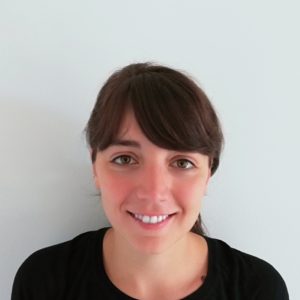
Virginia Ajani
PhD
| Contact Information | |
| E-mail: | virginia.ajani [at] cea [dot] fr |
| Phone: | |
| Office: | 272 |
| Affiliation: | IRFU/DAp-AIM |
| Supervisor: | Valeria Pettorino, Jean-Luc Starck |
Research Interests
My PhD research focuses on the development of statistical tools to analyse data coming from next-generation galaxy surveys like Euclid in the context of weak gravitational lensing. During the first part of my thesis I have built a pipeline to investigate the impact of different multi-scale filtering techniques on the cosmological parameter constraints using weak lensing peak counts to constrain the sum of neutrino masses with the final aim of finding optimal methods to extract cosmological information from the input data. If you are interested in more details you can find here the paper. I am very interested in machine learning , during my PhD formation I have attended courses on it specifically on application to astrophysical data.
I am part of the Euclid Consortium where I contribute to the Euclid Inter Science Taskforce on Likelihood.
I am one of the co-organisers of our group's CosmosClub. If you would like to give a talk and meet the CosmoStat group you can contact me or Isabella, Santiago and Tobias.
Talks and workshops
- Remote Seminar at Columbia University Department of Astronomy, New York, October 2020
- Talk at Colloque Nationale Action Dark Energy, Institut Henri Poincaré, Paris, November 2019
- Talk at Euclid France, Orsay, Institut d'Astrophysique Spatiale, November 2019
- Talk at Clusters and high-order statistics from weak-lensing mass maps splinter at Euclid Consortium Helsinki, June 2019
- Likelihood Free Inference Workshop, Flatiron Institute, New York March 2019 - (workshop)
Education
Before coming to CosmoStat I graduated in July 2018 and obtained a MSc in Theoretical Physics at University of Turin, bringing as a topic of my master thesis the Spherical Collapse of fuzzy dark matter.
From April to September 2017, I had a six-month research experience as visiting student at the Cosmology group of Max Planck Institut for Astrophysics (MPA) in Garching, where I worked on the spherical collapse of dark matter halos using ultra-light axions as alternative dark matter candidate.
